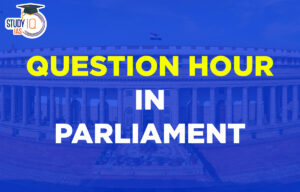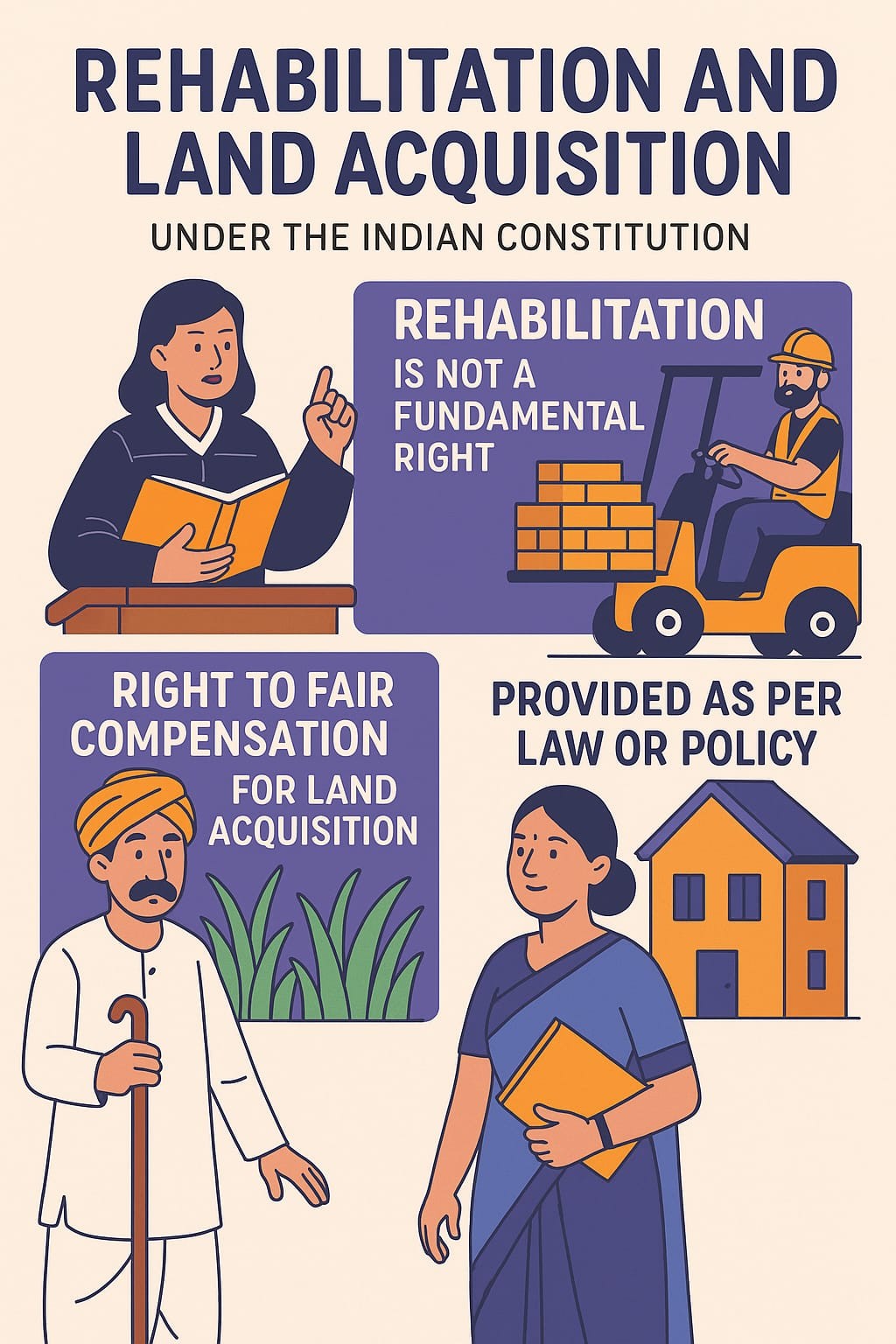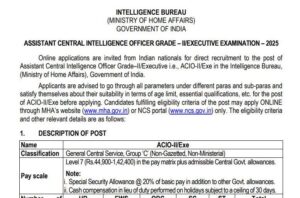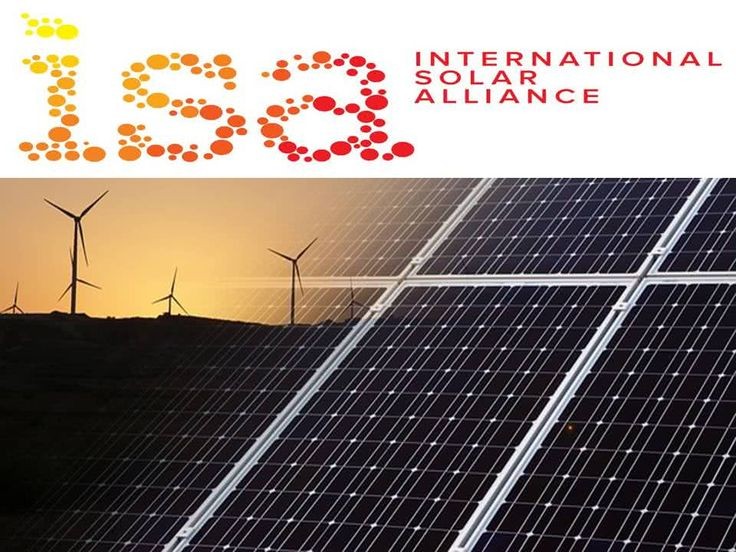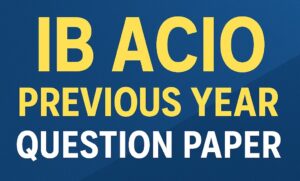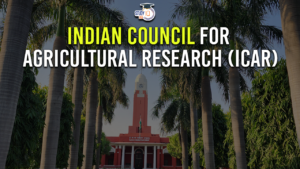StudyIQ is India’s Best Website for UPSC, State PSC, and Judiciary exam preparation. We offer a wide array of resources designed to help aspirants succeed in these highly competitive exams. Our platform provides UPSC Online Coaching, Daily Current Affairs, Government Schemes Updates, General Knowledge Updates, and State PSC Updates, ensuring that you stay well-informed and prepared at all times.
We cover a diverse range of subjects, including History Updates, Geography Updates, Indian Polity Updates, Environment Updates, Science Tech Updates, Economy Updates, and Art and Culture Updates. Our Biography Updates help you learn about influential figures that are often tested in various exams.
Trending Posts
- Question Hour in Parliament: Meaning, Types and SignificanceJuly 18, 2025Context: Trinamool Congress (TMC) leader Derek O’Brien said that ‘Question Hour is one of the few tools ...
- Rehabilitation and Land Acquisition in India: Constitutional Framework and Policy PerspectivesJuly 18, 2025Land acquisition in India is a contentious topic that intersects development, displacement, constitutional rights, and social justice. ...
- IB ACIO Apply Online 2025: Apply from July 19 to August 10, Get Direct LinkJuly 18, 2025The Ministry of Home Affairs (MHA) has officially made the IB ACIO Apply Online 2025 link live ...
- India and International Solar Alliance: India’s Leadership in the Global Solar RevolutionJuly 18, 2025In the 21st century, the energy discourse has transitioned from reliance on fossil fuels to the pursuit ...
- IB ACIO Notification 2025 PDF Out: Apply for 3717 Executive Posts @mha.gov.inJuly 18, 2025The Ministry of Home Affairs (MHA), Government of India, Intelligence Bureau (IB) has officially issued the IB ...
- IB ACIO Previous Year Papers | IB ACIO Previous Year Question Papers PDFJuly 18, 2025IB ACIO Previous Year Papers play a vital role in assisting candidates who are in the preparation ...
- Indian Council for Agricultural Research (ICAR)July 18, 2025Context: The 97th Foundation Day of the Indian Council for Agricultural Research (ICAR)was celebrated in New Delhi, ...
- China-Pakistan Collusion: Implication for IndiaJuly 18, 2025Context: China and Pakistan’s deepening strategic ties pose complex security challenges for India. China-Pakistan Collusion: Deepening China & ...
- ADEETIE Scheme to Boost Industrial Energy EfficiencyJuly 18, 2025Context: The Power Ministry is launching ADEETIE—India’s first scheme to support industries in adopting energy-efficient technologies, boosting ...
Government Schemes
- ADEETIE Scheme to Boost Industrial Energy Efficiency
- PM Dhan Dhanya Krishi Yojana (PMDDKY), Objectives and Key Features
- Sanchar Mitra Scheme, Objectives, Key Features and Implementation
- TALASH Initiative: Objective, Key Features and Significance
- Mukhyamantri Majhi Ladki Bahin Yojana, Objective, Eligibility Criteria and Benefits
- WHO Launched 3 by 35 Initiative targets Tobacco, Alcohol and Sugary Drinks
History
- Revival of Machilipatnam Port in Andhra Pradesh, Historical Significance and Economic Impact
- Nagari Pracharini Sabha Revival: Background, Key Publications and Legacy
- Ryotwari System in India, Features, Impacts and Drawbacks
- Battle of Plassey, History, Causes, Impacts and Significance
- Maharashtra’s Mendrachi Vancharai System
- Keeladi Excavation: Uncovering the Ancient Tamil Civilization
Geography
- LIGO Detects Most Massive Black Hole Merger to Date
- Why Is Earth Spinning Faster? Causes and Implications Explained
- Places in News for UPSC 2025 for Prelims and Mains Exam
- Critical Minerals, Key Issues, Importance and Challenges
- Grasslands in the World, Map, Types and Significance
- Earthquake in Delhi: Causes, Impacts and Preparedness Tips
Indian Polity
- Question Hour in Parliament: Meaning, Types and Significance
- List of Governor of States in India, Constitutional Provisions and Role
- Maharashtra Bill to Curb Urban Naxalism, Key Provisions and Issues
- Party System in India, Feature, Importance and Function
- Consolidated Fund of India, Meaning and Expenditure Formation
- National Register of Indian Citizens (NRIC), Objectives and Benefits
Environment
- Forest Management in India and Future of Forest Governance
- How is Global Shipping Trying to Decarbonise?
- Deserts and Open Ecosystems, Importance and Conservation
- Locust Infestation: Causes, Impact, and Control Measures
- Scheme for Critically Endangered Species
- Flue Gas Desulphurisation (FGD), Advantages and Challenges
Economy
- Mobile Money: Meaning, Benefits, and Role in Financial Inclusion
- Cat Bonds (Catastrophe Bonds), Meaning, Purpose, Pros and Cons
- What is Visible and Invisible Trade with Examples
- Chemical Industry in India: Powering India’s Participation in Global Value Chains
- Dynamic Pricing: What It Is and Why It’s Important
- Asset Monetisation Strategy for Road Sector and Its Significance
Biography
- Dr. Sarvepalli Radhakrishnan Biography, Literary Works and Legacy
- Dr. Shyama Prasad Mukherjee Biography, Legacy, and Contributions
- Savitribai Phule Biography, Early Life, Contribution and Legacy
- Tansen Biography, Musical Legacy and Master of Dhrupad
- Sree Narayana Guru (1856–1928), Key Movements and Literary Works
- Mangal Pandey Biography, History and Role in Revolt of 1857
Best UPSC IAS Preparation Website 2025
The objective of the StudyIQ is to provide every student across the country with affordable resources that can help them in their preparation for UPSC, State PSC and Judiciary exams.
StudyIQ covers all the recruitment information from the start till the end. After the release of the notification of the exam, we cover the detailed information that a candidate wants to know about a particular recruitment, such as the notification, important exam dates, vacancy details, eligibility criteria, exam pattern, syllabus, and educational qualifications. We also provide you with a direct link to download the notification PDF directly and steps to download or apply for the particular examination from the respective official website.
StudyIQ provided appropriate study material with the test series, book kit, mock test, previous years’ question papers with solutions, cut off, and daily MCQs. We provide you with vast knowledge of all subjects required for examination, section-wise knowledge, and also videos on the daily relevant current affairs topics on our StudyIQ YouTube platform.
Our test series, daily study notes/PDF, and mock tests help candidates prepare themselves on a daily basis for the UPSC, State PSC, and Judiciary examinations. This will help candidates increase their speed and Accuracy without going to any of the big cities for preparation.
Candidates can attempt proper section-wise mock tests for all topics at their home comfort zone. We also provide daily MCQs for a particular topic of the subject.
As we see there are ample amounts of study materials available in the market that sometimes dilute the focus of the candidates from the focused area. So, the StudyIQ team provides you with all relevant information in one place in a systematic way that can help you figure out the strategy and planning to complete their syllabus in a timely manner.
Best Website for UPSC Preparation 2025
The Union Public Service Commission conducts the UPSC CSE exam every year for the recruitment of various vacancies for the various posts of Group A and Group B under the central government. UPSC Civil Service 2025 is the biggest and most prestigious government examination. StudyIQ provides you with detailed information regarding the notification, exam pattern, eligibility criteria, important dates and syllabus, and Results.
Best UPSC Civil Service Preparation Website FAQs
Q. How do I start my UPSC preparation?
Ans. Candidates can start their UPSC preparation from the StudyIQ platform in a systematic way where you can find Daily Current Affairs, Burning Issues, Hindu Analysis, PIB Analysis and many more.
Q. How to cover current affairs when the IAS preparation syllabus is so vast?
Ans. Current Affairs for the IAS preparation is a very important part for which you can refer the StudyIQ’s Daily Current Affairs news Analysis and monthly magazine.
Q. Is self-preparation for the IAS exam enough to clear it?
Ans. Self-preparation for the IAS exam is a good choice but you need to start preparation in an organized manner with relevant study materials and proper strategy for which the StudyIQ platform can play an important role to provide all the UPSC-related materials and guidance at a place.
Q. Where to download UPSC study materials/IAS study material PDF?
Ans. Candidates can easily download UPSC study materials/IAS study material PDFs from India’s best UPSC platform StudyIQ.
Q. What are the Study Materials for GS preparation for IAS?
Ans. The Study Materials for GS preparation for the IAS exam include mainly NCERT from classes 6th to 12th, Daily Current Affairs & News analysis integrate with the static part and also refer to StudyIQ’s reference books such as Indian Geography, Indian Polity, Indian Economy, Indian Art & Culture and Fundamentals of Geography.
Q. Which website is best for the UPSC IAS exam preparation?
Ans. StudyIQ is the best platform for every aspect of the UPSC IAS exam preparation from scratch.

